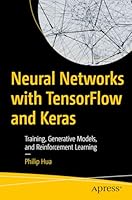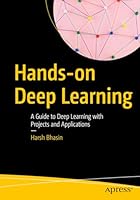
Learning Geospatial Analysis with Python
- Length: 364 pages
- Edition: 1
- Language: English
- Publisher: Packt Publishing
- Publication Date: 2013-10-25
- ISBN-10: 1783281138
- ISBN-13: 9781783281138
- Sales Rank: #1388247 (See Top 100 Books)
Master GIS and Remote Sensing analysis using Python with these easy to follow tutorials
Overview
- Construct applications for GIS development by exploiting Python
- Focuses on built-in Python modules and libraries compatible with the Python Packaging Index distribution system- no compiling of C libraries necessary
- This is a practical, hands-on tutorial that teaches you all about Geospatial analysis in Python
In Detail
Geospatial analysis is used in almost every field you can think of from medicine, to defense, to farming. It is an approach to use statistical analysis and other informational engineering to data which has a geographical or geospatial aspect. And this typically involves applications capable of geospatial display and processing to get a compiled and useful data.
“Learning Geospatial Analysis with Python” uses the expressive and powerful Python programming language to guide you through geographic information systems, remote sensing, topography, and more. It explains how to use a framework in order to approach Geospatial analysis effectively, but on your own terms.
“Learning Geospatial Analysis with Python” starts with a background of the field, a survey of the techniques and technology used, and then splits the field into its component speciality areas: GIS, remote sensing, elevation data, advanced modelling, and real-time data.
This book will teach you everything there is to know, from using a particular software package or API to using generic algorithms that can be applied to Geospatial analysis. This book focuses on pure Python whenever possible to minimize compiling platform-dependent binaries, so that you don’t become bogged down in just getting ready to do analysis.
“Learning Geospatial Analysis with Python” will round out your technical library with handy recipes and a good understanding of a field that supplements many a modern day human endeavors.
What you will learn from this book
- Automate Geospatial analysis workflows using Python
- Code the simplest possible GIS in 60 lines of Python
- Mold thematic maps with Python tools
- Get a hold of the various forms the geospatial data comes in
- Produce elevation contours using Python tools
- Create flood inundation models
- Learn Real-Time Data tracking and apply it in storm chasing
Approach
This is a tutorial-style book that helps you to perform Geospatial and GIS analysis with Python and its tools/libraries. This book will first introduce various Python-related tools/packages in the initial chapters before moving towards practical usage, examples, and implementation in specialized kinds of Geospatial data analysis.
Who this book is written for
This book is for anyone who wants to understand digital mapping and analysis and who uses Python or another scripting language for automation or crunching data manually.This book primarily targets Python developers, researchers, and analysts who want to perform Geospatial, modeling, and GIS analysis with Python.
Table of Contents
Chapter 1: Learning Geospatial Analysis with Python
Chapter 2: Geospatial Data
Chapter 3: The Geospatial Technology Landscape
Chapter 4: Geospatial Python Toolbox
Chapter 5: Python and Geographic Information Systems
Chapter 6: Python and Remote Sensing
Chapter 7: Python and Elevation Data
Chapter 8: Advanced Geospatial Python Modelling
Chapter 9: Real-Time Data
Chapter 10: Putting It All Together







